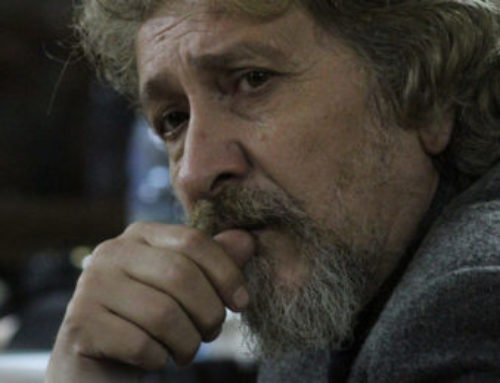The following interview was placed in the advance galleys of NOVEMBER, by Christopher Woodall.
Why choose fourteen working-class men in France during the 1970s as the subject matter for your novel? What in particular attracted you to that setting and time?
It wasn’t quite like that: I didn’t start with the desire to write a novel and then choose a subject, setting and time. The four novels of which November is the first came out of an experience which I had partly sought, partly stumbled into and which dumped the ‘subject’ in my lap – though it took me a while to appreciate it.
The phrase ‘fourteen working-class men’ makes them sound samey, whereas they could hardly be more different: one of the fourteen is actually the owner-manager of the plant; and the thirteen workers range widely in age, outlook, background and aspirations and hail from seven different countries. Even the six Frenchmen comprise a ‘Gypsy’, a ‘part-Gypsy’, a Marseillais, a hill farmer, and an ex-soldier. However, as I wrote in the novel’s Afterword, apart from such small details as nationality, appearance, gesture, and behaviour – fished like old hooks direct from my memory – each individual in the novel (including the scores of secondary characters) is the fruit of imagination.
Why did it take over 700 pages to do what you wanted to do with this book? Did you know it would or could be this length before you started?
When I started writing, I had no idea that a series of novels might eventuate. First came headlong prose devoid of people, wit, humour, real-world references, or any attempt to communicate. Later, when I began writing voluminously (an hour a day, a day a week, sometimes a week a month, always a month a year), the people appeared to self-fictionalise, materialising as from a fog, dragging with them a cohort of intimates, acquaintances, relationships and histories. The more questions I asked, the more answers I got. I soon had thousands of pages of scenes, dialogues, notes. Only then did I work out a structure for a suite of novels.
What I sought to do with November, while bracketing society and history from the narrators’ purview, was to get at the ‘things themselves’ – the work, the place, the processes, the lives of bodies and minds, as they might have unfolded second by second. Rather than floodlight any single man, I wanted to foreground each in turn, individually, in twos, or in groups, creating a fiction of group experience where each member is semi-detached, semi-estranged; I could do this only by multiplying perspectives. When I realized that the grain of the writing and the organization of its parts had also to change markedly throughout the course of November, I knew I had a long novel on my hands.
What were your biggest challenges writing November?
I was eager for November to be compelling not in spite of but because of the absence of a main protagonist and straightforward narrative arc. I came to think of both the writing and the reading as cognitive: I wrote to find out what I wanted to know (involving sometimes quasi-scientific experiments: what is there between Luigi and Jean? Bring them together and see…); similarly, the reading needed to be driven by a curiosity to know more. The work entailed labyrinthine mapping, always overwhelmed by the writing itself, then fresh mapping, and so on.
Who’s your perfect reader for this novel?
No exclusive reading expertise is required, merely a readiness to take the odd word on trust or to look something up. An interest in unfamiliar human territory would help… but isn’t that a requirement of all fiction?
An advance review likened your book to Jean Eustache’s 1973 film The Mother and the Whore, and called the novel ‘complex, deep, and seemingly unending.’ Do you think the comparison is a good one and the comment fair?
I’ve just seen Eustache’s wonderful film. The comparison is surprising but welcome. As for the comment, I’ll take it as single-edged. Complex – certainly. Deep – maybe, but light too. Unending? Of course.
How far along are you with future volumes in this series?
Some of the writing is done, more remains ahead. I’m faced with a whole set of new difficulties, but I’m learning.


